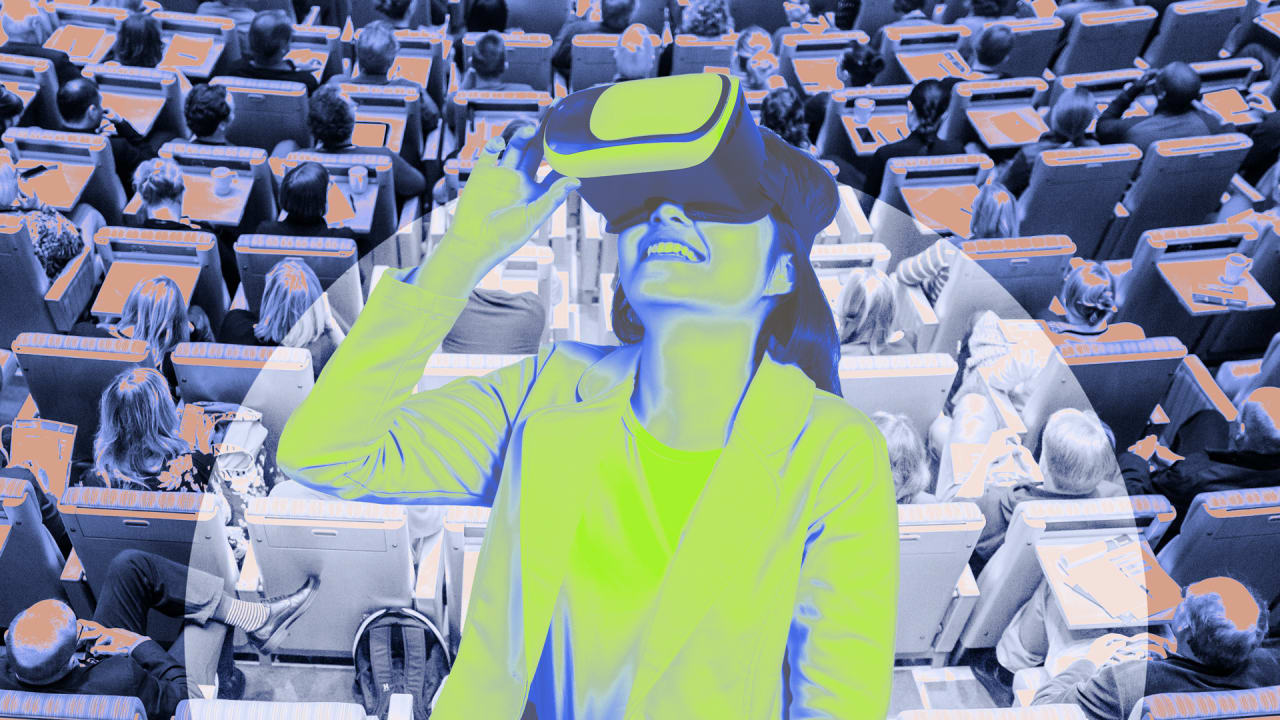
More and more colleges are becoming “metaversities,” taking their physical campuses into a virtual online world, often called the “metaverse.” One initiative has 10 U.S. universities and colleges working with Meta, the parent company of Facebook, and virtual reality company VictoryXR to create 3D online replicas—sometimes called “digital twins“—of their campuses that are updated live as people and items move through the real-world spaces.
Some classes are already happening in the metaverse. And VictoryXR says that by 2023, it plans to build and operate 100 digital twin campuses, which allow for a group setting with live instructors and real-time class interactions.
One metaversity builder, New Mexico State University, says it wants to offer degrees in which students can take all their classes in virtual reality, beginning in 2027.
There are many benefits to taking college classes in the metaverse, such as 3D visual learning, more realistic interactivity, and easier access for faraway students. But there are also potential problems. My recent research has focused on ethical, social, and practical aspects of the metaverse and risks such as privacy violations and security breaches. I see five challenges:
Professors and students may not freely participate in class discussions if they know that all their moves, their speech, and even their facial expressions are being watched by the university as well as a big technology company.
The virtual environment and its equipment can also collect a wide range of user data, such as physical movement, heart rate, pupil size, eye openness, and even signals of emotions.
Cyberattacks in the metaverse could even cause physical harm. Metaverse interfaces provide input directly into users’ senses, so they effectively trick the user’s brain into believing the user is in a different environment. People who attack virtual reality systems can influence the activities of immersed users, even inducing them to physically move into dangerous locations, such as to the top of a staircase.
The metaverse can also expose students to inappropriate content. For instance, Roblox has launched Roblox Education to bring 3D, interactive, virtual environments into physical and online classrooms. Roblox says it has strong protections to keep everyone safe, but no protections are perfect, and its metaverse involves user-generated content and a chat feature, which could be infiltrated by predators or people posting pornography or other illegal material.
3. Lack of rural access to advanced infrastructure
Many metaverse applications, such as 3D videos, are bandwidth-intensive. They require high-speed data networks to handle all of the information flowing between sensors and users across the virtual and physical space.
Many users, especially in rural areas, lack the infrastructure to support the streaming of high-quality metaverse content. For instance, 97% of the population living in urban areas in the U.S. has access to a high-speed connection, compared to 65% in rural areas and 60% in tribal lands.
5. Amplifying biases
Gender, racial, and ideological biases are common in textbooks of history, science, and other subjects, which influence how students understand certain events and topics. In some cases, those biases prevent the achievement of justice and other goals, such as gender equality.
Biases’ effects can be even more powerful in rich media environments. Films are more powerful at molding students’ views than textbooks. Metaverse content has the potential to be even more influential.
To maximize the benefits of the metaverse for teaching and learning, universities—and their students—will have to wrestle with protecting users’ privacy, training teachers, and the level of national investment in broadband networks.
Nir Kshetri is a professor of management at the University of North Carolina–Greensboro.
This article is republished from The Conversation under a Creative Commons license. Read the original article.


